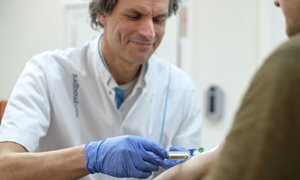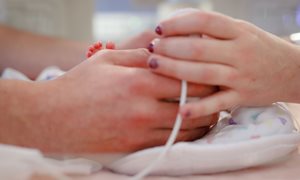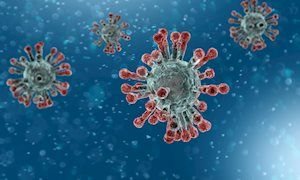
Targeted advice by nurses ensures that patients undergo surgery in a better fed condition. It also leads to shorter periods of fasting before surgery. This improves the intake of calories and protein. Patients also feel better due to less hunger, thirst, and headaches, concludes Harm van Noort of the Radboudumc in his PhD thesis.
For top athletes, it is quite normal to know exactly when to eat what, so that their body can perform optimally. Undergoing surgery is also a top performance. Therefore, it is important that patients enter surgery in a good nutritional condition. It is well-known that intake of sufficient calories and protein prevents complications and speeds up recovery. In the Netherlands, however, about fifteen percent of patients still enter surgery malnourished. Nursing researcher Harm van Noort of Radboudumc studied in his dissertation how nurses can improve the nutritional status of these patients.
Targeted advice
Van Noort discovered that patients received little information about their nutritional status and he therefore developed a nursing approach. Nurses first identified why patients were malnourished. This revealed, that they eat too little in the weeks before surgery, for instance because they are in pain. Also, patients often did not know what kind of food contains enough calories and protein. Half of the patients then received targeted advice from nurses; the other half served as a control group. 'The nurses advised, for example, on pain medication’, says Van Noort. 'They also gave advice on the composition and nutritional value of different types of food products. And they involved the patient's family. For example, they recommended eating together.’
The study shows that the patients who received nutritional advice ate much more and better than the control group. The number of patients who consumed enough calories was more than four times higher in this group. For protein intake, this was even more than six times higher. Van Noort: ‘This shows that it is very important that people learn how to eat properly in the weeks before they undergo surgery. Nurses see the patient the most. So it is important that they take the lead in the nutritional status of the patient.
Reduced fasting period
Van Noort also looked at the period of fasting before surgery. According to international guidelines, you can eat up to six hours, and drink up to two hours before surgery. This prevents gastric contents from entering the lungs during anesthesia and causing pneumonia. Van Noort reveals that compliance with the guideline is very poor: 'On average, patients stop eating fifteen hours before surgery and stop drinking five hours beforehand. 'That can be improved,' he thought. Therefore, patients were instructed by nurses: 'Eat and drink as long as allowed before surgery.' And it worked: in this group, the period during which they did not drink was cut in half compared to patients who were not given instructions. The period during which they did not eat decreased by a quarter. Fasting for shorter periods did not lead to more remaining food in the stomach and led to greater patient satisfaction. Van Noort: ‘They felt better because they had less hunger, thirst and headaches.’
Culture change
Despite the good results, Van Noort thinks that more is needed to improve the nutritional status of patients during surgery: 'We now mainly focus on remaining fasted from midnight onwards instead of continuing to eat and drink as long as possible. We make a report of a patient who has eaten something one hour before surgery. We deem that a safety issue, an error. But we seem to think it is fine when that same patient does not eat anything all day before surgery, but this is also harmful. That requires a culture change.’
More information about this PhD thesis defense
PhD thesis defense of Harm van Noort on December 14th at 12.30 p.m. Title of dissertation: Nutritional nursing care for patients undergoing surgery – a personalized approach (available online after 9 September). (Co-)supervisors: prof. dr. H. Vermeulen, prof. dr. B.J.M. Witteman, and dr. G. Huisman - de Waal. The defense can be followed via this livestream.
-
Want to know more about these subjects? Click on the buttons below for more news.








